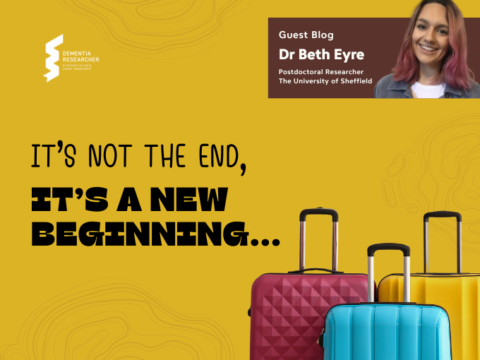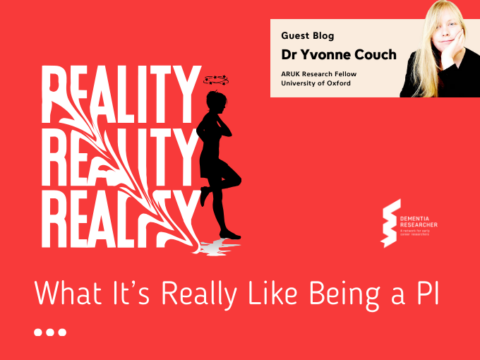Before I began my PhD, I had no idea what to expect. In my head people doing PhDs were some alien creatures who were somewhere I didn’t really think I could get to (is that imposter syndrome I hear?) Not knowing what to expect was slightly daunting. But not knowing what skills I would gain from a PhD was even more daunting – as we are all aware how competitive that job market is when we finish. So, in today’s blog I thought I’d highlight five important, transferable skills that I’ve gained throughout my PhD journey so far.
 1. Project management
1. Project management
I had some idea that I would develop my project management skills during my PhD as I knew a huge part of my PhD would be to manage my research project – but I don’t think I realised how much of my PhD was project management.
From the get go I was given an idea of my project, with some of the infrastructure in place but the rest was then up to me. From the start I’ve been given a lot or responsibility when it comes to my project – which I’m really glad I was given, as it’s definitely helped me hone in on my project management skills.
I’ve had to create organisational systems to keep track of orders, experiments, data analysis, papers I’ve read, timelines of when things would be completed by. At the start I honestly had no idea where to begin but as time has gone on, I’ve figured out what organisational systems work for me and I feel that I’ve really started to develop my project management skills.
The most important thing I’ve learned when it comes to project management is organization is key!
Don’t get me wrong, there is still lots more work to be done and some days things don’t go to plan but that is science for you!
 2. Managing a budget
2. Managing a budget
One thing I had no idea I would be doing as a PhD student is managing my own budget. I don’t think this is the case for all PhD students, but in my case, I’ve been given the opportunity to do this.
I have to ensure that I can afford all the project costs, including the purchase of any products from vendors outside the university. As well as ensuring that I’ve enough money to go to conferences.
Due to this, it’s meant that I’ve had to learn how to use the university purchasing system and has meant that I’ve had to liaise with company representatives when ordering certain products.
Managing my own budget has been a great experience and one that will come in handy when I apply for my own grants and have to manage those in the same way.
 3. Managing a social media account
3. Managing a social media account
Again, this is something not all PhD students have to do, but during lockdown I decided to set up my own science communication Instagram page (@bethsbrainbites) as I wanted to share my research, my passion for the brain and hopefully meet other scientists.
Little did I know that creating an account would be rather demanding at times. As I shared my passion for the brain with others and talked about my own PhD experiences I gained more followers – and with more followers comes more work.
I’ve had to learn to manage collaboration inquiries from companies, other science communicators and podcasts. As well as learning how to manage and reply to questions sent to me directly about PhD research.
It’s definitely been more work than I thought it would be but I’ve really enjoyed creating the account and I’ve gained so much from it – from improving my communication skills to becoming part of a worldwide community of other science communicators!
 4. Content creator
4. Content creator
Every PhD student will be a content creator at some point. I personally create content for my social media – such as infographics about dementia, anxiety and sleep. As well as creating videos about Alzheimer’s disease and parts of the brain.
However, even if I didn’t do this, I would still be a content creator, as PhD students have to make lots of presentations/posters!
I’ve found a couple of tools that have been really handy when making quick presentations or making posters for conferences. Canva is a great tool if you want to make eye catching presentations quickly, as they have a number of premade presentations that you can just edit. I’ve also found bioRender to be a fantastic way of creating engaging and accessible graphics for presentations, posters and social media content. Plus, both of them have a free version.
 5. Collaboration skills
5. Collaboration skills
By doing a PhD/being part of a research lab it’s very likely that you will conduct some form of collaboration with other researchers in the lab, researchers of a different lab or even charities.
A key part of academia is collaborating, but when I began my PhD, I had no idea how this would all work. How would I be able to collaborate with others who I don’t even know?
Well, academia is a small world, and people seem to know of everyone! Your supervisors are likely to have large networks of people they’ve worked with/know from conferences, so this is definitely a helpful tool if you are wanting to collaborate with others. You may also have PhD students in your department who are part of two departments, again this is helpful in creating connections.
One tool that I’ve found to be very helpful in collaborating with others is social media. I use twitter to see what academics in my field are doing right now and if they have job opportunities. Twitter is also a great way to learn more about any upcoming conferences and events and if these conferences or events have opportunities for you to get involved.
By taking advantage of these opportunities, it’s a way of developing your network and can be really helpful for your future career. I’m not going to lie, it’s been very daunting at times, especially following experts in my field. But I like to remind myself that we are all human and nobody starts off as an expert.
All of these skills I’ve mentioned are transferable to many jobs and many different industries. So, if you aren’t sure about what your next steps are after a PhD, or if you don’t think staying in academia is for you then remember that once you complete your PhD you will be highly employable!
I find it helpful to look over all the skills I’m continuing to develop throughout my PhD, as it’s so easy to lose the big picture when you’re so focused on completing experiments, getting data and writing up your work.
I hope this blog has reminded you of all those important skills that you could develop during a PhD or that you are developing right now during your PhD.

Beth Eyre
Author
Beth Eyre is a 2nd year PhD Student at The University of Sheffield, researching Neurovascular and cognitive function in preclinical models of Alzheimer’s disease. Beth has a background in psychology, where she gained her degree from the University of Leeds. Inside and outside the lab, Beth loves sharing her science and we are delighted to have her contributing as a regular blogger with Dementia Researcher, sharing her work and discussing her career.

 Print This Post
Print This Post




